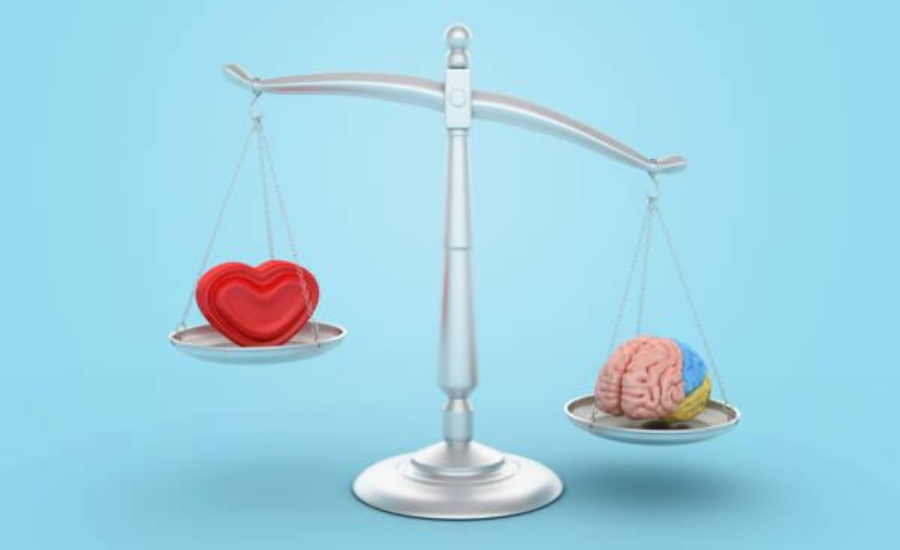Understanding the Symptoms of Chemical Imbalances in the Brain
We’ve all heard the phrase “chemical imbalance” when it comes to mental health, but do we understand what it means? In simple terms, a chemical imbalance in the brain refers to disruptions in the levels of neurotransmitters (brain chemicals) that help transmit signals across different areas of the brain. These imbalances can significantly affect your mood, thoughts, behavior, and overall mental health. In this post, we’re going to dive deep into the symptoms of chemical imbalance in the brain, how they manifest, and what you can do about them.
What is a Chemical Imbalance in the Brain?
Before we explore the symptoms, let’s briefly talk about what causes chemical imbalances. Your brain relies on neurotransmitters like serotonin, dopamine, norepinephrine, and others to regulate mood, anxiety, motivation, sleep, and even memory. When these chemicals are out of balance—whether they’re too high, too low, or not functioning properly—it can lead to various mental health conditions.
Chemical imbalances are often linked with disorders such as depression, anxiety, bipolar disorder, and even schizophrenia. But while it’s a common theory in psychology and psychiatry, it’s not always as simple as just “fixing” the imbalance with medication. Other factors like genetics, lifestyle choices, trauma, or environmental stressors can also play a role in how the brain’s chemicals behave.
Common Symptoms of Chemical Imbalance in the Brain
Now that we understand the basics, let’s explore the symptoms of chemical imbalances in the brain in more detail. These symptoms can vary widely, depending on which neurotransmitters are affected and the specific condition you may be experiencing. Here are the most common signs to look out for:
1. Persistent Sadness or Low Mood (Depression)
One of the most obvious signs of a chemical imbalance in the brain is a feeling of deep, unshakeable sadness. If your brain’s serotonin levels are low, it can lead to feelings of hopelessness or a lack of motivation. This is often seen in individuals suffering from depression, where even the simplest tasks feel overwhelming.
Symptoms of depression may include:
- Persistent sadness or irritability
- Loss of interest in activities you once enjoyed
- Fatigue or low-energy
- Difficulty concentrating
- Feelings of worthlessness
2. Extreme Mood Swings (Bipolar Disorder)
If you experience rapid mood changes—from feeling euphoric and overly energetic one moment to feeling hopeless and drained the next—you may be dealing with a chemical imbalance in the brain linked to bipolar disorder. This condition is often associated with abnormal levels of dopamine and serotonin. These fluctuations can severely impact your daily life, relationships, and work.
Common symptoms include:
- Extreme highs (mania) or lows (depression)
- Irritability and impulsiveness
- Racing thoughts
- Sleep disturbances
3. Excessive Worry or Anxiety (Generalized Anxiety Disorder)
Anxiety is another key sign of a chemical imbalance in the brain, particularly when there’s an imbalance of serotonin, dopamine, or gamma-aminobutyric acid (GABA), which regulates relaxation. If you constantly feel on edge, nervous, or anxious, it might be due to these imbalances. People with anxiety often feel overwhelmed by everyday situations, making it difficult to manage normal stress.
Symptoms of anxiety include:
- Constant worry or nervousness
- Physical symptoms like trembling, sweating, or a racing heart
- Difficulty concentrating or sleeping
- Avoidance of social situations
4. Impaired Memory and Focus (Cognitive Dysfunction)
When your brain’s chemistry is out of balance, it can impact your cognitive functions. Low dopamine levels, for example, can make it difficult to focus or retain information. You might find yourself forgetting things more often or feeling mentally “foggy.” This is common in conditions like ADHD and can also occur with depression or anxiety.
Symptoms might include:
- Difficulty concentrating or staying on task
- Forgetfulness and trouble with memory recall
- Feeling mentally “cloudy” or disoriented
- Trouble making decisions
5. Sleep Disorders (Insomnia or Hypersomnia)
Chemical imbalances in the brain can significantly affect your sleep. Neurotransmitters like serotonin and melatonin play crucial roles in regulating sleep-wake cycles. Low serotonin levels may lead to insomnia, while imbalances in other neurotransmitters can cause excessive sleepiness or hypersomnia.
Symptoms of sleep disorders include:
- Difficulty falling asleep or staying asleep (insomnia)
- Sleeping too much (hypersomnia)
- Feeling fatigued during the day despite getting a full night’s sleep
- Waking up frequently during the night
6. Addictive Behavior or Impulsivity
An imbalance in the brain’s dopamine system can lead to addictive behaviors. Dopamine is the “feel-good” neurotransmitter, and when it’s out of balance, it can cause you to crave that instant gratification or “high” that comes with certain behaviors, like gambling, substance use, or even overeating.
Signs to watch for:
- Engaging in compulsive or impulsive behavior
- Seeking out risky or thrill-seeking experiences
- Difficulty controlling urges
- Feelings of addiction to certain substances or activities
7. Social Withdrawal and Lack of Interest in Others (Social Isolation)
If you feel detached or disconnected from friends and family, it could be a sign of a chemical imbalance in the brain. Imbalances in serotonin and other neurotransmitters can cause social withdrawal, making you feel as though you don’t have the energy or interest to engage with others.
Symptoms may include:
- Withdrawal from social activities or hobbies
- A lack of desire to communicate with others
- Feeling isolated or disconnected from people around you
- Difficulty forming or maintaining relationships
What Causes Chemical Imbalances in the Brain?
The causes of a chemical imbalance in the brain can be complex. Here are some potential factors:
- Genetics: Your family history can play a major role in how your brain functions. If mental health disorders run in your family, you might be more predisposed to chemical imbalances.
- Chronic Stress: Long-term stress can alter neurotransmitter levels, leading to conditions like anxiety or depression.
- Diet and Lifestyle: Poor nutrition, lack of sleep, and substance abuse can also affect brain chemistry.
- Trauma: Past traumatic experiences, including abuse or loss, can disrupt brain function and contribute to imbalances.
- Medical Conditions: Certain conditions, like thyroid imbalances or neurological diseases, can affect neurotransmitter production.
FAQs about Symptoms of Chemical Imbalance in the Brain
1. How do I know if my brain is chemically imbalanced?
If you’re experiencing prolonged mood changes, trouble sleeping, anxiety, or cognitive issues, you might be dealing with a chemical imbalance. It’s important to speak with a healthcare provider for proper diagnosis and treatment.
2. Can chemical imbalances be treated?
Yes, chemical imbalances can often be managed with medication, therapy, or lifestyle changes. Medications like antidepressants or mood stabilizers help regulate neurotransmitter levels. Cognitive Behavioral Therapy (CBT) and stress management techniques can also improve symptoms.
3. Can chemical imbalances be prevented?
While some factors like genetics are out of your control, maintaining a healthy lifestyle—through regular exercise, a balanced diet, stress reduction, and proper sleep—can help keep your brain chemistry balanced.
4. Can a chemical imbalance in the brain be permanent?
With the right treatment, many people can manage or even reverse the effects of chemical imbalances. However, the long-term prognosis depends on the individual and the severity of the imbalance.
Conclusion
Understanding the symptoms of chemical imbalance in the brain is the first step toward getting the help you need. If you or someone you know is experiencing these symptoms, it’s essential to reach out to a healthcare professional who can provide the right diagnosis and treatment plan. With the right support, it’s possible to manage the symptoms and improve your mental well-being. Remember, mental health is just as important as physical health, and it’s okay to ask for help when needed.
Stay In Touch For More Updates And Alerts: Blog Vn Call Center






